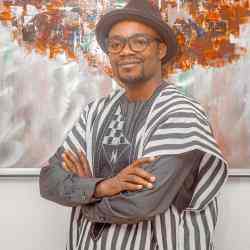Introdução
Francisco de Oliveira Rebouças Neto, known as Neto, is taking a regional approach to economic recovery by implementing a package of microloan and training programs for individuals and families in small towns experiencing severe economic decline. Neto's idea is to create a chain of interlinked microbusinesses that help rebuild the economy of these communities.
A nova ideia
Neto is promoting regional economic and social development by establishing locally administered microlending and professional training services to stimulate new businesses. He is helping small municipalities, once dependent on extractive industries that have since disappeared, to maximize their most valuable resources–namely, their citizens. In these towns, which are undergoing economic devastation because of high unemployment, the majority of individuals who are poor, unemployed or undereducated have no access to capital or training for starting small businesses. Neto founded ORGAPE-CE (the Organization to Support the Small Enterprises of Ceará State) to help individuals, their families, and communities create new income generating opportunities. In each of the towns, Neto establishes a board of community members, trains local loan agents, and provides support to loan recipients as they move through a process from subsistence to consolidation, expansion, and profit-making. ORGAPE-CE provides a package of value-added services to ensure the success of the entrepreneur and the revival of the community's economy. The strength of the model is not merely the method of lending and client support. Neto links the small enterprises so they can exchange goods and services throughout the supply chain. Neto then builds partnerships with businesses, governments, and civil society organizations to increase the overall level of social and economic investment in the region. Neto is taking ORGAPE-CE from one municipality to another, creating a network of small cities that are investing in their citizens while stimulating their local economies. Through this approach, Neto is promoting the creation of an active and dynamic economy in a once stagnant and declining region.
O problema
In the state of Ceará, as throughout Brazil, small to mid-sized municipalities (pop. ten to fifty thousand) are suffering from severe economic decline due to shifts in the global economy, the exhaustion of natural resources, and the obsolescence of traditional industries. For example, Icapuí had depended heavily on two industries (salt production and lobster fishing). However, in recent years, the introduction of new salt production machinery eliminated much of the need for local labor, and the over-harvesting of lobsters caused that industry to decline. Therefore, since the late 1980s, the municipality has experienced high unemployment and severe economic decline. In small municipalities, there is little support or incentive for small business entrepreneurs to jump-start the economy, diversify economic activity, or increase employment and income. Most people in these small towns are not formally educated and cannot access credit through large banks, which do not want to take risks on people they perceive as merely poor fishermen and manual laborers. The few microcredit organizations that exist in Brazil–the most prominent being SEBRAE (the Brazilian Service to Support Micro and Small Enterprises)–offer credit to residents only in large cities, further excluding small-town residents in the Northeast from social and economic opportunities.
A estratégia
Neto, closely tied to the Icapuí municipality since his childhood, witnessed its economic decline. He met people who wanted to start a carpentry shop, a barbershop, or a bakery, but had no means to start. He realized that to improve the town's economic and social situation, investing in small business initiatives could provide individuals with access to training and short-term credit. Drawing on his personal reputation for community involvement, Neto held meetings with city officials and convinced them to allocate 5 percent of the city budget to create a revolving credit fund for small-scale entrepreneurs. Although this first initiative ended due to government bureaucracy and periods of high inflation, the program gained recognition and credibility. In 1995, Neto persuaded UNICEF representatives trying to implement a child labor prevention project that the children's families needed long-term support and income generation instead of subsidies. UNICEF agreed and started a revolving fund through the local government. When bureaucratic challenges arose, Neto convinced all parties to transfer this fund to the citizen sector. In 1996, Neto founded ORGAPE-CE to support local development through small loans to help individuals, families, companies, and communities launch small businesses.Neto used this new organization and the support he had already garnered from the municipality and other partners to implement his idea on a larger scale. He reorganized the credit fund and created a local committee which reviews and approves clients from their communities. The ORGAPE-CE team monitors the process and helps as needed. This crucial element of the model takes advantage of the small size of the municipalities in which Neto works. Local committee members and ORGAPE-CE advisors are in a position to monitor the progress of each client and intervene if necessary to help ensure that the enterprise is successful.The formula for success involves a low interest rate (only 1.5 percent per month versus a minimum of 7.5 percent at commercial banks) and broad access to credit. Loan interest is reinvested into the fund, permitting ORGAPE-CE to offer a package of services, including training and support for clients. Interest rates are significantly lower than conventional regional or federal microcredit programs for three main reasons: a) loans are managed by a nonprofit organization and not a profit-seeking bank, b) local management and the package of services decrease the rate of loan defaults, and thus the investment risk, and c) a partnership with the municipalities to provide infrastructure to ORGAPE-CE and its agents reduces the cost of maintaining the program. In addition, there is no minimum value for loans. The result is broad access to credit for even the smallest-scale entrepreneur, who is typically excluded from traditional programs. ORGAPE-CE enters at the key moment to help establish, consolidate and grow the enterprise. To ensure the long-term success of the businesses, Neto has leveraged his position as founder and president of ORGAPE-CE to form partnerships with regional and national banks to enable ORGAPE-CE clients to access larger bank loans. Neto is also linking with foundations and civil society organizations to provide families with services. In effect, ORGAPE-CE has become a link between small entrepreneurs and the once unattainable service providers small entrepreneurs need to be successful. With the success of the program, Neto has increased the initial fund to support more individuals, attracting the interest of the media and other municipalities.Neto has consolidated his microcredit model for local economic recovery into a strategy for regional development. With support from the Brazilian National Bank for Economic and Social Development (BNDES), he has embarked on a process to expand the model regionally by training agents in nine municipalities in the Valley of Jaguaribe. Since August 2000, Neto has expanded from seven to ten municipalities, benefiting 1,335 families. By the end of 2001 Neto will have set up four more ORGAPE offices in as many municipalities. Municipalities entering the program pay the costs of starting up the fund, which is then maintained by ORGAPE. Neto plans to incorporate sixteen additional municipalities over the next two years. The strategic plan also calls for municipalities already involved in the program to expand their credit fund to invest in a larger number of small entrepreneurs. In light of speculation over the changing of the federal Central Bank policies over microcredit, Neto is solidifying his partnerships with institutions like BNDES, major banks, and SEBRAE, to propose that the ORGAPE methodology be implemented in small cities facing economic stagnation across the country.With the success of the individual enterprises, Neto is now developing a second component of his model to fortify small businesses and create a local "solidarity economy." He is transforming the supply chain, traditionally focused on buying and selling goods in the distant capital of Fortaleza. First, Neto is linking small enterprises to exchange products and services with one another, reinforcing the investment ORGAPE-CE makes in their businesses. Second, he is convincing local retailers and larger companies to support production within their own communities, finding ways to make it economically feasible and socially desirable to buy locally.
A pessoa
When Neto was born in Icapuí, Ceará, this fishing town had no main road, school, health services, potable water, or electricity. He had to leave to attend primary school, high school, and university, but he always returned, spending years with other students planning strategies to improve the community and encouraging the municipal government to make changes. Neto got involved with political and social action to create an independent municipality in Icapuí, which until that point had been an underserved part of a larger district. Particularly frustrated by the lack of educational services in the municipality, in 1985 Neto helped mobilize the return of students who had left the community to study; he persuaded them to return as volunteer teachers to start schools in all corners of the municipality. Neto himself taught mathematics and seized this opportunity to hold seminars and community discussions at the school to discuss economic opportunities for the young municipality whose fishermen and miners were losing their livelihoods.Neto identified the gravest problems: unemployment and low family incomes. He was invited to present his ideas to the municipal government. This led to the development of a revolving fund for loans to small business entrepreneurs to help boost the municipal economy. Since founding ORGAPE-CE and implementing the regional approach of microloans and microenterprise development through a local "solidarity economy," Neto is now ready to consolidate the model in the region and expand it to other regions in Brazil.




